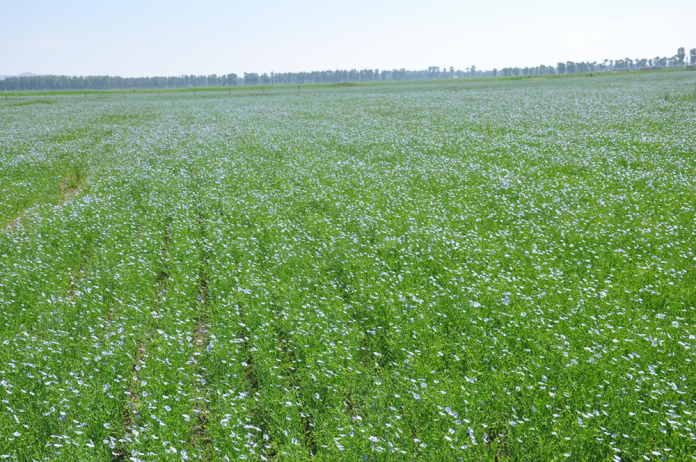On May 23, the Gansu Academy of Agricultural Sciences and the Sindh Agriculture University of Tandojam, Pakistan officially signed a memorandum of understanding for the China-Pakistan flax research and innovation hub.
Start from September 2020, Lanzhou, the capital of Gansu Province, has launched a work task to establish flax stress-resistance and breeding foreign intellectual achievements demonstration and promotion base. The MoU, as the fruit, was signed through online linked by Dr. Ma Zhongming, President of the GAAS, and Prof. Dr. Fateh Mohammad Maree, Vice Chancellor of Sindh Agriculture University of Tandojam.
Both parties agreed to encourage the transfer of a series of modern agricultural technologies from GAAS to SAU, including innovation and cultivation techniques of fruit germplasm resources in cold and arid regions, cultivation of flax and molecular breeding, forage sorghum cultivation and feeding technique, breeding and release of new cultivars in cold and arid regions: cotton, rape, flax, small miscellaneous grains, etc., as well as education and training of agriculture talents in cold and arid areas.
To be more specific, GAAS and SAU are going to organize joint research programs, conferences and training workshops, but also exchange of the faculty, graduates (Masters and Ph.D. students) on scholarship. Besides, exchange of academic materials and periodicals are indispensable as well.
“Our new flax varieties, the Longya series, are all selected according to the climate conditions of dry with little rainfall in Northwest China. In the planting experiments, the yield is generally more than 10 percent higher than that of the local varieties, and the resistance to diseases and insect pests is more satisfactory. Up to now, Longya No. 11, No. 14, and No. 15 have been planted in Pakistan preliminarily. If everything goes well, the series should be able to exert a good effect of drought resistance and increase yield under the climate conditions of Pakistan,” Zhao Wei, Researcher at the Crop Research Institute of GAAS, indicated in an exclusive interview.
Under the MoU, the parties agree to establish a flax study research and innovation hub between two countries, which focuses on high-yield and high-quality composite crops, cooperates in research, demonstration, and promotion of variety selection, optimization of cultivation technology, plant protection, and agricultural mechanization.
The average production of flaxseed in Pakistan is as low as 692 kg per hectare because of less soil fertility, blind use of fertilizers, lack of high-yield hybrid varieties and old cultivation practices. Looking into the importance of edible oil and low yield of oil crops in Pakistan, it is of great importance to select and cultivate flax varieties suitable for Pakistan’s climate and soil conditions as early as possible.
“In addition to flax cultivation, our value-added products, for instance, α-linolenic acid capsules, eye care solution, as well as technical achievements such as flax seeds used as livestock feed to increase the content of α-linolenic acid in milk and meat, can share experience with Pakistani counterparts to develop more products suitable for the local market,” Researcher Zhao told the reporter that to their surprise, the protection and application of flax resources in Pakistani universities is impressive. “Next, we hope to carry out more exchanges on the innovation of stress-resistant germplasm resources of flax and the selection of new varieties, in the first place.”


